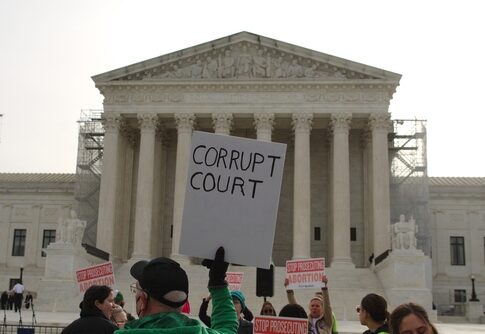The recent Supreme Court ruling that overturned the Chevron doctrine—a legal precedent that allowed federal agencies significant leeway in interpreting ambiguous laws—could have sweeping implications for the Biden administration’s legislative achievements. This ruling marks a significant shift in the balance of power, potentially nullifying a broad swath of regulatory actions taken during Biden’s presidency.
The Chevron doctrine, established in 1984, had empowered agencies like the Environmental Protection Agency (EPA) and the Department of Health and Human Services (HHS) to fill in the gaps when Congress enacted laws that were not fully detailed. The Supreme Court’s conservative majority argued that this deference to agencies allowed unelected officials too much control over regulatory decisions, thereby undermining judicial oversight and the Constitution’s separation of powers.
On Friday, June 28th, the Supreme Court overturned the Chevron doctrine. This will notably impact the environmental protection of rivers, wetlands, and streams. Particularly at issue will be the scope and interpretation of the Clean Water Act. Learn more:https://t.co/2P9vGO5fuJ
— American Rivers (@americanrivers) August 21, 2024
The ruling is particularly concerning for the Biden administration because it could pave the way for the reversal of numerous regulations. Biden's policies on environmental protection, public health, and consumer rights—many of which rely on the detailed implementation by federal agencies—are now more vulnerable to legal challenges. Critics argue that this decision could lead to a "convulsive shock" to the legal system, creating chaos as courts take on more responsibility for interpreting complex laws.
One immediate consequence is the increased likelihood of legal challenges against Biden's climate initiatives. The administration's efforts to regulate carbon emissions, protect wetlands, and advance clean energy projects could be significantly hampered. Without the Chevron deference, agencies like the EPA might struggle to defend their interpretations of environmental laws, particularly when facing opposition from powerful industry groups and states.
In the recent Supreme Court term, #ChevronDeference was overturned by the court. We discuss what Chevron Deference is, as well as the ways employers may be impacted by this decision. https://t.co/WLgOC5WI0K #FutureofWork #health pic.twitter.com/gALJe3y1Tz
— Mercer US (@Mercer_US) August 26, 2024
The decision also raises concerns about the future of Biden's health and safety regulations. The Occupational Safety and Health Administration (OSHA) and the Food and Drug Administration (FDA), for example, may find it more difficult to enforce regulations on workplace safety and drug approvals without the judicial deference they previously enjoyed. This shift could embolden companies to challenge regulatory decisions more aggressively, potentially leading to a rollback of protections that many Americans have come to rely on.
Additionally, this ruling could affect Biden’s efforts to address economic inequality and consumer protections. The Consumer Financial Protection Bureau (CFPB), which has been a target of Republican criticism, could see its authority to regulate financial markets and protect consumers from predatory practices severely weakened. This could result in a less regulated financial industry, increasing risks for consumers.
The Supreme Court's decision reflects a broader conservative effort to curtail the power of the administrative state—a trend that has gained momentum with the court’s current makeup. This ruling follows a series of decisions that have already struck down Biden’s policies on vaccine mandates and student loan forgiveness, further complicating his administration's ability to govern effectively.
As the Biden administration grapples with the fallout from this decision, the potential for widespread deregulation looms large. The ruling could lead to a cascade of legal challenges, forcing the administration to defend its policies in court while also navigating the political implications of a judiciary increasingly hostile to executive power. This shift could ultimately reshape the landscape of American governance, with significant consequences for the federal government's ability to address complex, modern-day challenges.

